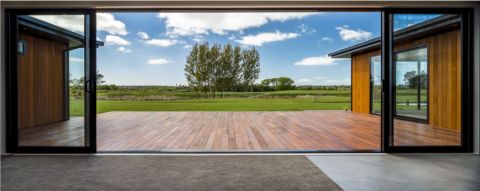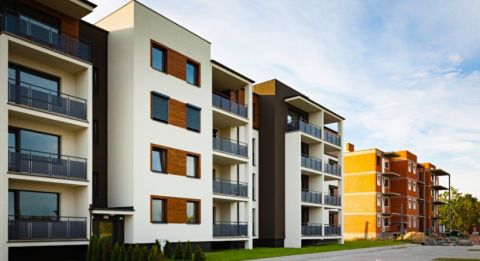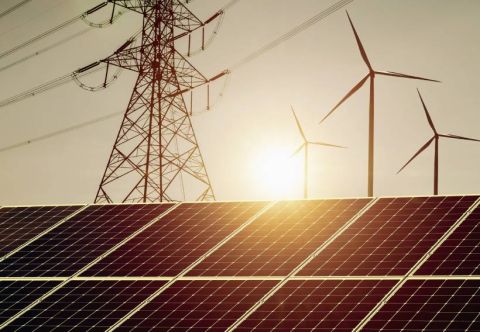News
Read the latest stories on the latest renewable HVAC developments.
Featured article
British Gas launches Dimplex Quantum Tariff
British Gas and Dimplex have partnered to launch the British Gas Dimplex Quantum Tariff, the UK’s most advanced electric storage heating tariff for use with the Dimplex Quantum Storage Heater.

Heat pump COP & EER and central plant SCOP in ambient loops
What is the COP and EER of an in-apartment heat pump? Is the SCOP of the central plant a better indicator of energy performance for an ambient loop?

What do you need to consider with a ground source heat pump (GSHP)?
There are three key considerations when specifying a ground source heat pump (GSHP); installation, energy efficiency and aesthetics.

Glen Dimplex responds to new Building Regulation Approved Documents
This week saw the long-awaited publication of the English Building Regulations. Having contributed to the workshops and consultations that led to these new Approved Documents, we were pleased to see much of the industry feedback cited appears to have been incorporated, particularly in the case of flexibility when replacing traditional fossil fuel systems.

Getting ready for 2020 compliance
The consultation for the Future Homes Standard, including Government’s proposal to update Approved Document L and Approved Document F during 2020, has closed. The final version, taking into account the feedback from industry on the initial document, is likely to be published mid-2020 and become the new standard in the closing months of this year.

A Futurebuild Exclusive – Primary Energy Report
Industry events are a good platform to understand about future affecting the construction industry. This is why we are launching our newest report and seminar event at Futurebuild 2019 on a transition expected in the Part L update, which will change the focus of compliance.

The Future Homes Standard 2025: Changes to Part F 2021
The Future Homes Standard has brought about the review of all aspects of residential building design. Here we outline the changes to Part F of the Building Regulations which address ventilation and maintenance of indoor air quality in residential dwellings.

Fan coil refurbishment for improved operational efficiency
What are the key components to consider for fan coil refurbishment that could lead to improved operational efficiencies?

Election 2019: Energy Inefficiency, Fuelling the discussion
The election that will take place on Thursday has been framed as the most important general election in modern history. The preceding campaign has been characterised by countless divisive issues from Brexit to public spending. In an election where unity seems sparse, matters that cause the major political parties to coalesce around some semblance of the same objective are almost cause for celebration.

What is the difference between monobloc and split system air source heat pumps?
The main difference between a monobloc air source heat pump and a split system air source heat pump is that the monobloc heat pump has all the necessary components for an air source heat pump contained within one single unit. The split system, as the name suggests, splits the components between two units. This leads to differences in size, flexibility, noise emitted and installation requirements.

The Energy Performance of Buildings Directive and the NZEB 2020 target for new buildings
What is the Energy Performance of Buildings Directive?
The Energy Performance of Buildings Directive (EPBD) has been in place for all European member states, including the UK, since 2010, with the latest update coming into effect in July 2018.

Defining the Future of Compliance
The compliance system for new developments is set to drastically change over the next 16 months. The consultations for Approved Documents L and F, which are expected to take place towards the end of 2019, will be the only opportunity for industry to support or appeal these changes, which have a high potential to heavily impact building design, HVAC specification and the carbon-focused mindset of the industry.

Decarbonising heat and what lessons have been learnt?
Decarbonising heat is seen as a key area to address if the UK is to achieve its net-zero 2050 target. The scale, complexity, and cost of the transition to low carbon heating technology means the industry needs time and support to adjust to the changes it faces. The much-anticipated regulatory framework and clear strategy for the energy transition process should provide a reliable platform to take on the challenges on our journey to a low carbon future.











